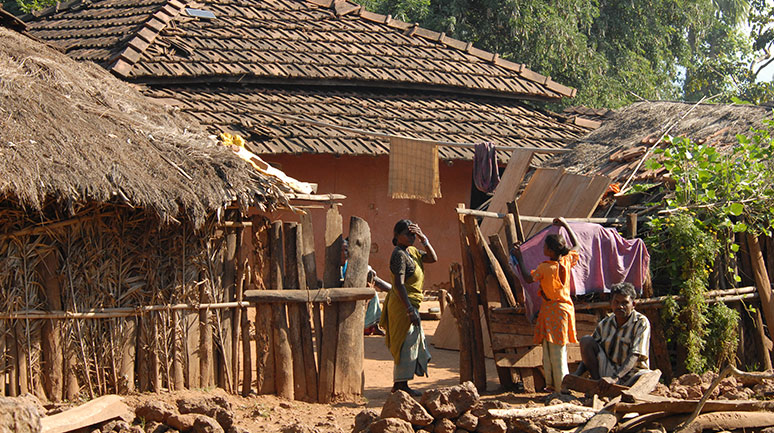January 5, 2018
Sayanti Sur January 5, 2018
Categories
Do the changes being slowly inculcated in tribal life, represented by the adivasis of Kewlajhiri, add up to development? Do traditional practices, customs, beliefs need to be shed in order to bring about transformation in people’s lives? Does the government take into account the wealth of traditional wisdom when it determines how to develop a village?
September 7, 2016
Saheb Bhattacharyya September 7, 2016
Categories
Establishing mulberry sericulture as an alternative farm-based livelihood activity was a slow and steady endeavour of the PRADAN team in Betul district of Madhya Pradesh, leading to income-generation and a degree of prosperity for women farmers
January 2, 2016
Sibin Varghese January 2, 2016
Categories
Moving from the policies of a welfare state to the participatory processes of MGNREGA and other poverty alleviation programmes has inspired greater ownership and a more vibrant involvement of the poor and the marginalized in the development of their own villages
May 1, 2015
Sohini Paul May 1, 2015
Categories
One of the reasons for the economic, social and political subordination of women in India is their lack of effective rights in property, especially land. Having rights over land is necessary for more equal gender relations, both within and outside the household. The situation is worse for single women—those who are abandoned, deserted, separated, divorced, unmarried or widowed.
February 13, 2014
Mansoor Naqvi February 13, 2014
Categories
Creating an awareness of gender issues among women, sharing information with them on related laws and legal rights, and building their confidence to demand action, as a collective, from the officials are some of the ways by which the heinous crime of human trafficking is being addressed in the tribal areas of Madhya Pradesh
August 1, 2010
Vishal Jamkar August 1, 2010
Categories
Physical violence, abuse and desertion failed to break Saraswati bai’s spirit. With support from her SHG, CRP and her lawyer, she not only became financially self-sufficient but also succeeded in challenging the social norms of the village


